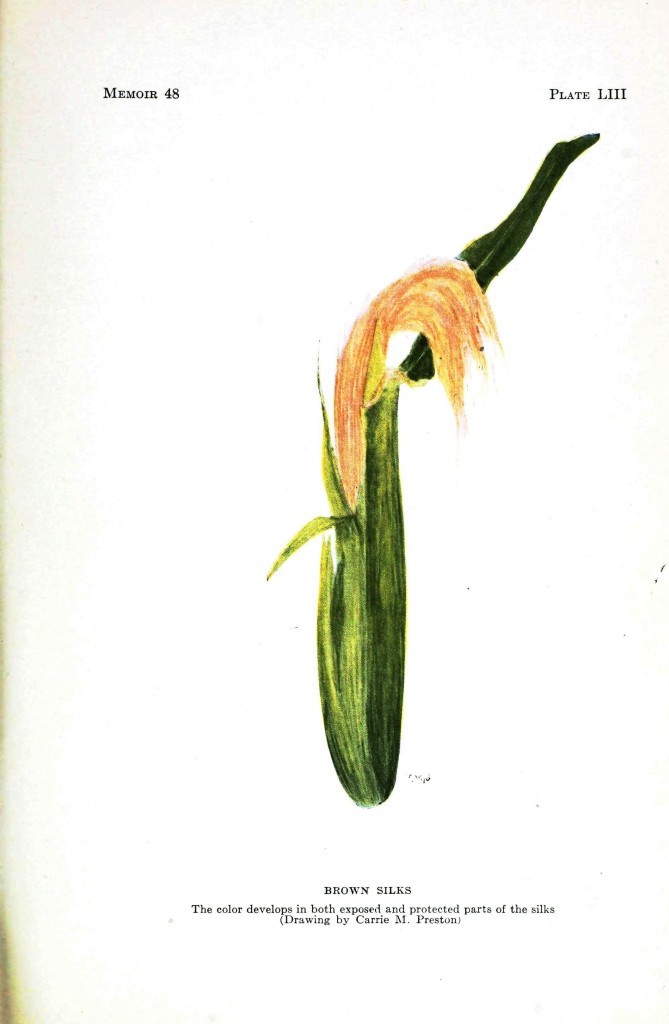 Also Known As:
Also Known As:
Indian Corn, Yu Mi Xiu, Zea.
Scientific Name:
Zea mays.
Family: Poaceae/Gramineae.
People Use This For:
Orally, corn silk is used for cystitis, urethritis, bedwetting, inflammation of the
prostate, acute and chronic inflammation of the urinary system.
Safety:
No concerns regading safety, available studies validate this statement, when
used orally in amounts commonly found in foods. Generally Recognized as Safe
(GRAS) status in the US.6
No concerns regarding safety when used orally and appropriately in medicinal
amounts.7
Pregnancy and Lactation: Refer to a Medical Herbalist
Effectiveness:
There is not enough scientific information available to comment about the
effectiveness of corn silk.
Mechanism of Action:
Corn silk contains tannins, which are astringent, and cryptoxanthin, which has
vitamin A activity.8 Diuretic. Demulcent (mucilagenous). Choleretic (promotes
bile flow). The diuretic and choleretic action has been demonstrated in animal
studies.R5 In China it is used for Hepato-Biliary Disease.R6,R7
Adverse Reactions:
None.
Interactions with Herbs & Supplements:
Herbs and Supplements with Hypotensive Effects: Corn silk is thought to have
hypotensive effects, may have an additive effect with blood pressure lowering
agents.
Interactions with Drugs:
Antidiabetes Drugs: Theoretically, because some evidence suggests corn
silk can reduce blood glucose levels, excessive amounts might interfere with
diabetes therapy.R1 pp.222
Diuretic Drugs: Additive Effect.R4 pp.192,204,215
Lithium: Because of Diuretic effect.
Warfarin (Coumadin): Corn silk contains vitamin K. Individuals taking
warfarin should consume a consistent daily amount to maintain consistent
anticoagulation.9
Interactions with Foods:
None known.
Interactions with Lab Tests:
None known.
Interactions with Diseases or Conditions:
None within normal dose range.
Dosage/Administration:
Oral: 4-8 grams dried style/stigma three times daily, or one cup tea (steep 0.5
grams dried corn silk in 150 mL boiling water 5-10 minutes, strain) several times
daily.8,10 Liquid extract of maize stigmas, 4-8 mL.8 Tincture (1:5 in 25% alcohol),
5-15 mL three times daily. 8 Syrup of maize stigmas, 8-15 mL.8
Dr Clare’s Comments:
Corn silk is the silky threads that surround the ear of sweetcorn. It is one on the
few herbs that are more effective dried, probably because they have such a high
water content it would take a lot of them to make an effective fresh infusion.
It would be nice to think that Corn Silk would ‘treat’ high blood pressure/diabetes
however it is likely to be helpful in the way an extra portion of fruit or vegetables
are helpful. It will not reduce a normal blood sugar or a normal Blood Pressure in
my experience. Nor has it been reported, these are theoretical considerations.
Specific References: CORN SILK
6. FDA. Center for Food Safety and Applied Nutrition, Office of Premarket Approval, EAFUS: A
food additive database. Available at: vm.cfsan.fda.gov/~dms/eafus.html.
7.
McGuffin M, Hobbs C, Upton R, Goldberg A, eds. American Herbal Products Association's
Botanical Safety Handbook. Boca Raton, FL: CRC Press, LLC 1997.
8.
Newall CA, Anderson LA, Philpson JD. Herbal Medicine: A Guide for Healthcare
Professionals. London, UK: The Pharmaceutical Press, 1996.
9. Brinker F. Herb Contraindications and Drug Interactions. 2nd ed. Sandy, OR: Eclectic Medical
Publications, 1998.
Wichtl MW. Herbal Drugs and Phytopharmaceuticals. Ed. N.M. Bisset.
10.
Stuttgart: Medpharm GmbH Scientific Publishers, 1994